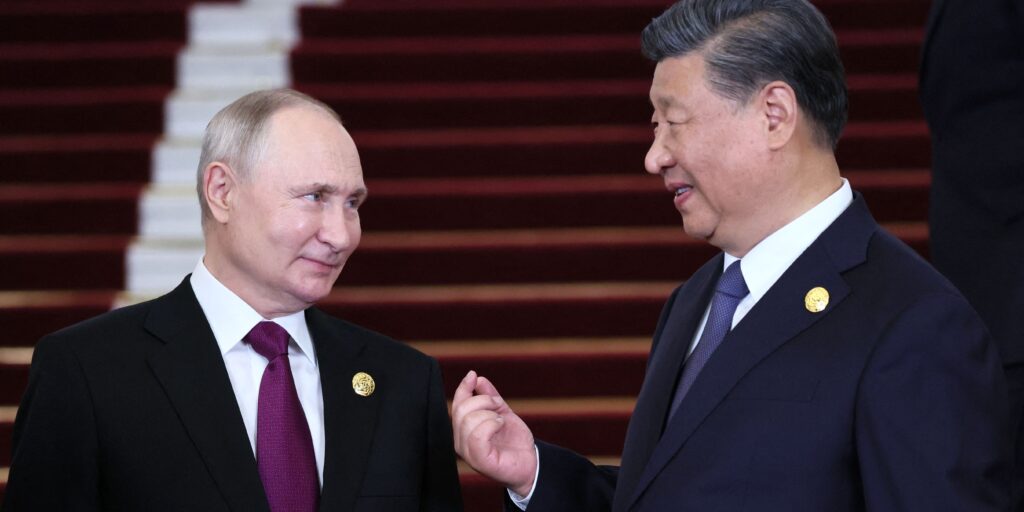- Chinese banks are halting yuan transactions with Russia, an Izvestia report said, cited by Reuters.
- It's a consequence of Western pressure on China, a Kremlin spokesperson said.
- The US has increasingly touted secondary sanctions on foreign banks that work with Russia.
A number of Chinese banks are reported to have restricted payment transactions with Russia, prompting one Kremlin official to call out the West.
Ping An Bank and Bank of Ningbo have ceased facilitating yuan payments coming from Russia, according to an Izvestia newspaper report cited by Reuters. A number of separate lenders have also applied limited curbs on Russian dealings.
Western pressure is to blame, Kremlin spokesperson Dmitry Peskov attested in a daily conference call with journalists.
"Of course, unprecedented pressure from the United States and the European Union on the People's Republic of China continues, including in the context of relations with us," he said, quoted by Reuters.
Russian clients first began noting payment difficulties in January, after the US extended its sanctioning power to target Russia-friendly institutions. After the December mandate, Washington has stepped up pressure on foreign banks worldwide, threatening dealers in Turkey and the United Arab Emirates with secondary sanctions.
It's even taken aim at Raiffeisen Bank International, a Western lender in Austria.
Fears of similar repercussions had already prompted three of China's Big Four state banks to halt payments from Russia at the start of the year.
It's a bad sign for Russia, whose dependency on Beijing has only increased since the Kremlin's war on Ukraine began in 2022. As the Western world has increasingly rejected Moscow, China has stepped in, and bilateral trade between the two countries exploded in 2023.
Still, China's willingness to comply with the West comes as its trade with the US is much greater than the one shared with Russia, First Group's Alexey Poroshin told Izvestia in February.
"This, of course, creates certain problems, but cannot become an obstacle to the further development of our trade and economic relations (with China)," Peskov said, referring to Western pressure.

